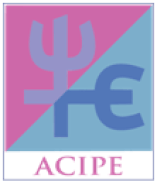
Yolanda Sánchez Sandoval
University of Cadiz, Spain
Protective family dimensions for well-being and development throughout the life cycle.
Participants: Pilar Fornell, Natalia Jiménez, Melissa L. Martínez, Sandra Melero
The communications from this symposium present results from four research projects that provide empirical evidence on the role of the family, and more specifically of fathers and mothers, as protective factors for well-being and development throughout the life cycle. These projects coincide in that they are families that have had to face specific challenges due to biological conditions of their children (prematurity, for example) or social conditions (adopted, for example), which may have made coexistence difficult. In addition, they provide the dynamic role of the life cycle, addressing early childhood, middle childhood, adolescence, and young adults. The first communication analyses, in a cohort of very low birth weight premature children (≤ 32 weeks and/or less than 1500g), the parental skills of their parents when their children are 18-24 months old, as well as their relationship with neonatal and socio-familial characteristics. The second communication presents preliminary analyzes on the relationship between some dimensions of parenting (communication, affection, stress, family involvement) and the quality of life at 8 years of age in another cohort of children born prematurely. The third communication analyzes the role of family psychosocial risk in the perceived well-being of Spanish and Chilean adolescents. Finally, a fourth communication longitudinally analyzes the associations between family dynamics during childhood and the psychological well-being of young adult adoptees.
Yolanda Sánchez Sandoval is a University Professor, in the area of Evolutionary and Educational Psychology, at the University of Cádiz. He leads the APRIL research group, Psychological Well-being, Risk and Child Protection. He has a long research career in the line of psychological development of children at risk and protection. He has participated in different projects financed by public and private entities with an important transfer component. His research and transfer work on adoptive families stands out. He is currently responsible for two research projects (national: PID2019-110484RB-I00, and regional: P20-00915) on the neurodevelopment of very low birth weight preterm boys and girls, and its relationship with biological and socio-family factors. He also carries out his research work as a member of the Cádiz Institute for Innovation and Biomedical Research and Health (INIBICA). His teaching in Degrees, Master's Degrees and Doctorates at various universities is closely linked to child protection and the promotion of development. She is currently Secretary of the Academic Committee of the Doctoral Program in Health Sciences at the University of Cádiz.





